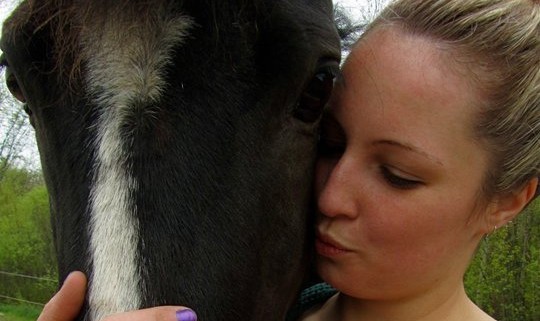Anxiety in Horses
Anxiety is one of the most common behavior issues that riders and trainers need to address when working with horses. Horses are herbivores which, in the wild, makes them prey animals. Their instinct to flee in the face of danger can make working with horses very challenging. It is easy to get complacent when working with a trusty horse that you have known and loved for years, but it is important to always be alert because a horse’s nature is to protect themselves whether the mysterious object in the distance is a lion or just a bush.
Often times there are specific situations that seem to set off our horses’. In many cases we do not know our horses’ histories or why they react to certain situations with fear, but there seem to be a list of triggers that are common stressors:
- Objects: umbrellas, farm equipment, plastic bags, flapping tarps
- Situations: dark or enclosed areas like a trailer or indoor arena
- Separation: being left alone without their herd
- Sounds: loud bangs or rustling
- Handling: grooming, clippers, farrier work
- Travel: new places, sounds & smells
- Training: not understanding what their rider/trainer is asking of them
- Animals: deer, cows, dogs, birds, etc
The best way to address your horse’s anxiety is to desensitize them to the trigger. Introduce them slowly and gently to whatever item or activity upsets them. Repetition, consistency and positive reinforcement are the key to teaching your hose that they do not need to be afraid. Make sure to give your horse a good workout before confronting them with anxiety triggers so that any extra energy has already been worked out of their system allowing you to start with a relaxed horse. Natural calming supplements may be a good aid for severe cases because the horse can experience whatever is scaring them with a clear head and learn that it is not to be feared.
Studies
Could work be a source of behavioral disorders? A study in horses.
Conjugated equine estrogen enhances rats’ cognitive, anxiety and social behavior.
Effects of L-theanine on posttraumatic stress disorder induced changes in rat brain gene expression.


